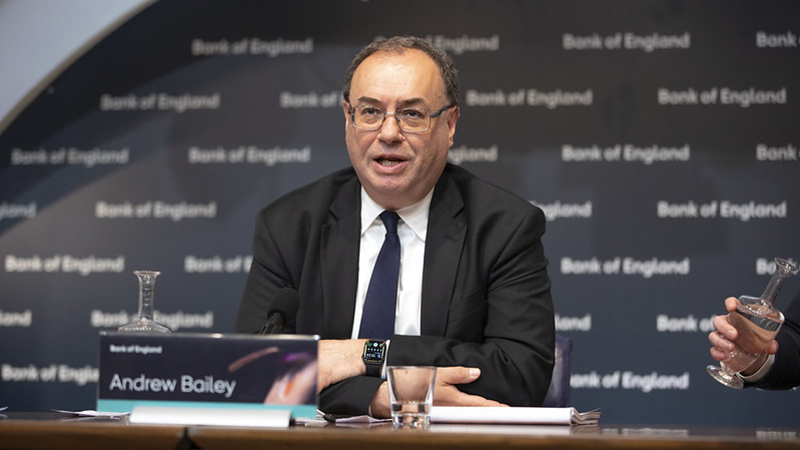UK economic growth was zero in February, according to the Office for National Statistics.
Economists had forecast Britain would eek out growth of 0.1% in the month, but the impact of various strikes by workers took a toll on overall productivity.
The sluggish performance of the economy increases the probability that the Bank of England has already enacted its last interest rate rise of this cycle. Ultimately, this will be decided by inflation data.
Should inflation show no signs of subsiding, Andrew Bailey (pictured) and his colleagues would be in the highly undesirable position of having to raise rates into an already stalled economy.
There was significant variation across sectors, with services delivering weak numbers while others such as construction faring better.
Britain remains on track to avoid a recession, but only barely.
“After beating forecasts in January, UK GDP stalled in February showing zero growth,” noted Charles Hepworth, investment director at GAM Investment. “While technically true that this is better than what was feared some quarters ago, Chancellor Hunt claiming that the “economic outlook is looking brighter” is quite some suspension of disbelief.
“Industrial strike action was the primary root cause of stagnating growth in the UK over the month. March saw continued striking and April sees no decrease. Therefore, we are likely to continue to see the depressive effect on any growth.
“Inflation data will still be the driver for Bank of England policy which is more than likely past the peak,” he continued. “However, expectations of inflation to continue to underperform other developed market peers still puts UK risk assets in the unloved box for global allocators.”
Victoria Scholar, head of investment at Interactive Investor, commented: “Weakness in services and production offset strength in construction, which grew by 2.4% thanks to strong demand for repair work. The retail sector also enjoyed a strong month except for motor vehicles and motorcycles. However, the public sector was negatively impacted by civil servant and teacher strikes. Unseasonably mild weather in February also reduced demand for electricity and gas.
“Chancellor Jeremy Hunt painted a rosy picture by saying ‘we are set to avoid recession thanks to the steps we have taken’. However Shadow Chancellor Rachel Reeves said Britain is still ‘lagging behind on the global stage’. Earlier this week, the IMF said it expects the UK to shrink by 0.3% this year, the worst growth rate across the G20 including sanction-hit Russia.”
“Although the UK looks set to avoid a technical recession and last year’s extremely pessimistic forecasts have been wound back, the economy is still expected to shrink this year as pressures from persistent inflation with the cost-of-living crisis, falling real wages and a high exposure to gas prices take their toll. Plus the recent turmoil in the banking sector is likely to add to the UK’s economic woes.”







